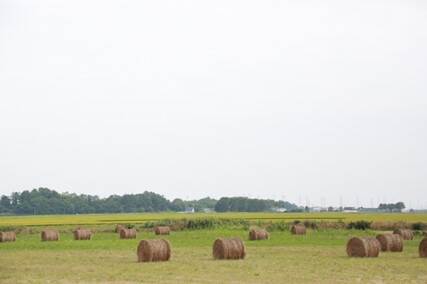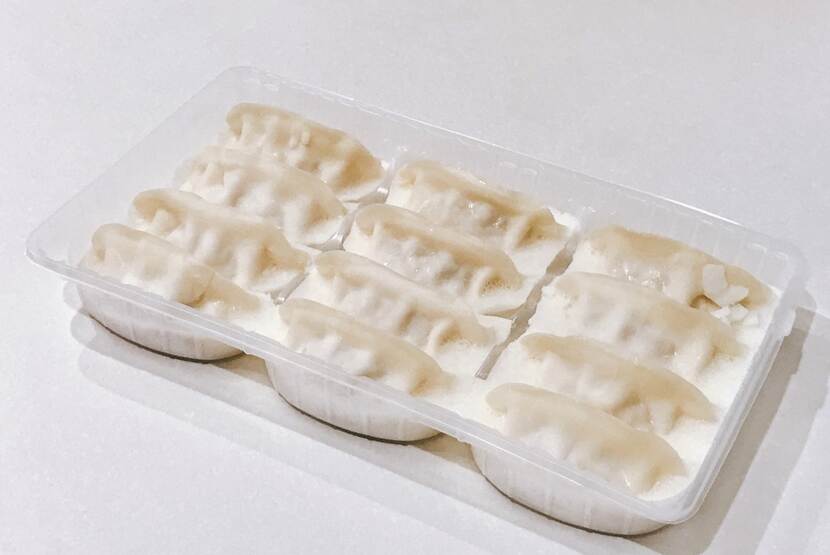Japan News Update #46 (14-27 Feb 2023)
Stay updated on the latest agricultural news in Japan, that we publish every two weeks.
by Yuki Sano
Livestock news in Japan
The number of dairy farmers in Japan decreased by 6.5% to 11,202 in December compared to the previous year's period due to rising feed costs. The dairy industry is also facing challenges of weak demand and a lack of successors to take over farms, resulting in a consistent average annual decline of 4% in the number of dairy farmers.
Source: Japan lacking dairy farmers as cost of feed rises

In late January, the Japanese authorities apprehended a foreign national on suspicion of unlawfully importing livestock products through international mail. In Japan, a law forbids the transportation of meat such as pork and chicken, as well as meat products like sausages and ham from several regions, without regard to the quantity or mode of transportation, to prevent the spread of infectious diseases among livestock.
Source: Illegal importation of livestock products on the rise in Japan
This season, bird flu is spreading rapidly across the country, with both the number of outbreaks and the scale of birds culled reaching new heights. According to figures from MAFF, approximately 14.78 million birds have been culled, a 50 percent increase from the 9.87 million recorded in the 2020-21 season.
Source: Bird flu outbreaks, cull numbers hit new highs in Japan
Utilization of AI and robots in food production and delivery
Ibaraki Prefecture is Japan's largest source of mackerel, with a volume of 73,800 tons caught in 2021. The prefectural government is experimenting with using ICT, including artificial intelligence, to make its fish farming industry sustainable and inheritable by future generations.
Source: AI to Feed Mackerel Farms in Ibaraki Prefecture
A research initiative led by Hokkaido University aims to mitigate the climate impact of cow burps by developing stomach sensors and utilizing AI to administer feed that suppresses methane production efficiently. To determine the peak methane production in cows, the team intends to create a small sensor by 2030. Ultimately, AI will analyze the data and automatically dispense methane-inhibiting feed at the optimum time.
Source: Japan researchers working to reduce climate impact of cow burps
Revised traffic laws in Japan will allow self-driving delivery robots to operate on streets starting in April. These robots could address a shortage of delivery workers and help older people in depopulated rural areas access goods. The DeliRo delivery robot, developed by Tokyo-based robotics firm ZMP, has been tested for delivering medicine and food in Tokyo.
Source: Japan rolls out 'humble and lovable' delivery robots
Alternative meat and seafood market
Japanese Prime Minister Kishida announced plans to develop Japan's cellular agriculture industry to produce cultivated meat and fish. Although Japan's regulatory environment for selling cell-cultivated meat is viewed as having a reasonably quick glide path, there are still regulatory hurdles that must be resolved before cultivated meat can be sold to consumers.
As demand for marine resources increases, Nippon Ham, a major Japanese food processing firm, has become the first major Japanese food manufacturer to enter the alternative seafood market. The company has created a fried fish product resembling whitefish for household sale. The company is also developing plans to offer popcorn shrimp to companies that operate chain restaurants. The firm spent a year developing these alternative seafood products using plant-derived ingredients to bring out the seafood flavor and recreate its texture.
Source: Nippon Ham's plant-based seafood is first for major Japanese food manufacturer
Japan’s current food and flower consumption trends
Frozen food is taking center stage at a major food exhibition in Japan. It has become increasingly popular with Japanese consumers due to freezing technology and flavor improvements. Last year, households had expended an average of 10,000 yen ($75) on frozen food, almost a 30 percent increase in yen terms from 2019, before the pandemic outbreak.
Source: Frozen food takes center stage at Japan expo

According to a survey conducted by Japan Agricultural News, younger individuals are inclined towards shorter flowers to decorate their homes. Over half of the respondents aged between 20 and 30 said they prefer flowers less than 20 cm long. Overall, 40% of the participants liked short-stemmed flowers, which are 20 cm or less. Although short-stemmed cut flowers were typically categorized as lower grade during the shipping process, efforts are underway to establish a new standard for them in the market and promote their use.
Source: Younger people prefer short-stemmed cut flowers
Kaneka Corporation, a Japanese international chemical manufacturing firm, launches a new organic JAS-certified organic yogurt. This product uses organic raw milk from Betsukai Wellness Farm, a dedicated organic farm that will be JAS-certified as organic in December 2022.
Source: Started integrated organic approach from dairy farming to sales
Japanese firm movements toward sustainability
Spread Co., Ltd., a Japanese vertical farming company, secured a sustainability-linked loan (SLL) of $4.6 million (600 million yen) from SHIGA BANK, LTD. This marks the first SLL obtained by a vertical farming company in Japan. The loan is structured with Sustainability Performance Targets (SPTs) tied to the company's business strategy, with lending conditions such as interest rates linked to attaining these targets.
Source: Japan: Spread signs $4.6 million sustainability-linked loan, news release by Spread